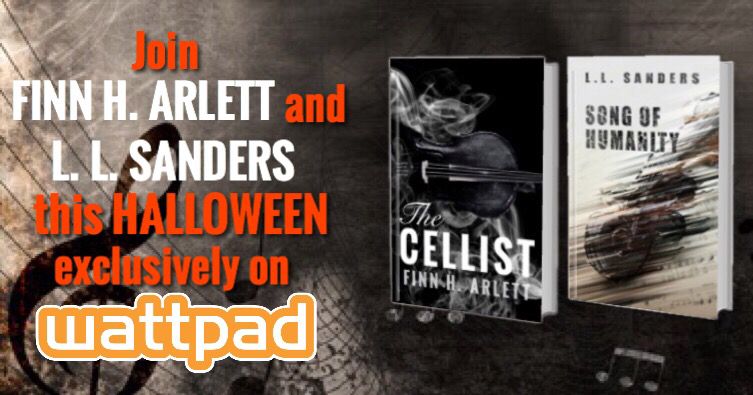15. A Man of a Thousand Pieces

"Frederic ... you ..." I had never truly expected this dreaded and magnificent moment would ever arrive. "This is ... You've done it, I can't believe ..."
Frederic's reaction was the last I had foreseen. This was by far the champion of his many lifelong achievements, and under any other circumstance I could tease a rare smile as I praised him. But not this time. Frederic had a face like a funeral procession.
"Read on," he replied, and he flicked ahead a few pages. "You have to know the truth."
From that point I noticed a marked change in his handwriting. It seemed distracted, crossed-out, hurried, and then I discovered why. The compound of Frederic's creation, of course, did not stay merely theoretical. Corgaine had begun to figure out ways of purifying it for practical use and had succeeded on rats and pigs, though it nonetheless shocked me learn that once he had experimented on animals he'd moved further afield onto a human subject.
A country girl, Frederic's writing informed me, who they nicknamed Faith, had died aged seventeen of blood loss following the illegitimate birth of a baby boy. Her mother and father, so sick and desperate for money to raise the newborn, sold their daughter's body when Corgaine's dour-faced aide came knocking.
It seemed the man named Harry Fairchild had become less an aide in recent years and more Corgaine's means of 'acquiring' bodies. I recalled then how he'd seemed so impartial to giving me directions to the victim in the alley and, in hindsight, felt almost insulted by it; that the whole time I was oblivious to any diabolical undertakings before I arrived at that moment.
According to Frederic's notes, Faith had been their first success at instilling life back into a cadaver through artificial means, though she was not their first donor – if I may use the term so loosely. Though wholly disturbed to find that Corgaine had finally disgraced himself to such an abominable pursuit of grandeur, I knew from the wicked ideas we had once shared in confidence within mere months of our acquaintance, that buying human subjects was an act not below him.
I skimmed the particulars of the purification, preparation and administration of this questionable compound, but it seemed once all that had been done they'd kept Faith in the upstairs of the lab for observation for two nights before she gained consciousness enough to escape ...
Ending up in Glasten General's women's ward.
I almost dropped the journal from my grasp as I realised the momentousness of it. Corgaine had brought a girl back from the dead. She was no historical reincarnation of some wraith, no creature Haas had called a vicche ... she was the product of Frederic's brilliance and Corgiane's lunacy, and together they had created something science could not yet define. Something that had haunted every person it had encountered until the day I saw her scattered into a thousand pieces.
It was clear Frederic's unstable compound did not restore life in a manner that even he understood. And yet, Frederic's notes told that Faith had lived in a limp, dream-like state for some days before her final fate. I could not begin to piece together at the time how I felt about this realisation. It was a complicated cocktail of disgust, pride, fear and relief, which all together rendered me numbed in body and mind.
Gone were the images to come of Frederic's name immortalised in textbooks and carried into the future. Gone was my admiration for finally revealing the truth to end the long-standing feud between Corgaine and I. If anything ... (and at this I could not feel the joy I should have) it proved my own theories simultaneously right and wrong, and smudged the line between science and the paranormal so beyond redemption that I could not at first grasp what it meant for our prospects.
Though I outright dreaded doing so, I skipped ahead to the 15th of October, the day after I'd unwittingly found what became of Viola Howard in Minster Park. What I read next was unlike anything he had written thus far. The letters were indistinct; the spaces between the words hardly in existence. What I saw before me were the scattered, terror-stricken thoughts plucked from his mind that same night, and as I let my eyes glance over their meaning I felt a hot dizziness seize me, yet it left my skin ice cold.
What I read was fear itself. It was chaos.
'Her soul is at unrest. Her soul is lost. Lost amidst the living, the breathing, the seeing, the feeling. It is amongst us she wanders. She does not understand. She does not know what to do. I am disgusting and I am abhorrent. I should not feel sympathy for her. But it's my fault. I let him create a pathogen like no other. A virus of the soul. Because of us she destroys the last shred of purity in me. She will kill those not strong enough. Poison the minds of those she touches. She knows who made her this way and I've seen her. She follows me. She watches me. She knows what I fear; knows what I feel inside. I should not have let him do it. I was too prideful to refuse. So honoured. But I know of the things he has done. I know the kind of man he is. And now, because of my own arrogance – of my own brazen, foolhardy ambition to make my name in discovery – I have created evil.'
It was after reading this haunting passage that I found in myself an element that I'd temporarily lost. I had been witness to countless deaths and horrors that mere words do not hold the power to relieve. Of these I have willingly pursued the mystery into murkier depths as my fears fade into the umbrae of my desire for answers.
Regarding this vile abomination to which I had learnt my dear friend was the cause, this had not been the case. I'd found myself enclosed in fears and desires of another nature, almost that of another man's, but that morning, as I coolly placed Frederic's journal upon the counter, I knew what I must do.
Find Corgaine.
I use the definition carefully, with particular distinction between what I must do and what I should. Had I been a pragmatic, upstanding citizen, I would have kept the journal on my person and given Frederic Emory and Jonathan Corgaine as names towards police investigation without delay. This would spell the end of Frederic's future, and not only one in science. Yet still, after reading of the villainy he had conceived and fashioned in utter secrecy, I considered – and do to this day – that his termination was the best course of action.
It was not without extraordinary difficulty that I returned the journal to him. My reasons for doing so might even sound noble should I so write it – that I sought to protect Frederic and deal with this dilemma privately – though in truth, investigating Corgaine meant a good many other things ... including the investigation of Joseph Redding, and that I could not allow.
Nothing, not even the horrific reanimations and deaths of several living beings would have me consider this an option. Though for a civilian to protect the interests of a guilty party a crime as of itself, I do not regard self-preservation a sin.
And so, I made my decision with deadness in my heart, once again reengaged with my long-absent compass of rationality that, with luck, would guide us towards Corgaine.
We searched for traces of blood or footprints around the lab and the chapel's vicinity, though found nothing in the snow of considerable interest. Neither Frederic nor I could determine where Corgaine might have fled to. Whatever fate had befallen the man, even a madman like Corgaine would not have brought it upon his wife and child, so it was with certainty that we did not also check his home.
I did not know of any family or friends of his in Glasten, as Corgaine was not native to the area, and by nature unsociable. I knew not of anywhere else he might go besides to Harry Fairchild or the hospital, though, as it turned out, neither Fairchild nor Glasten General had seen or heard from him.
I did not dare voice it, but I mostly hoped that whatever became of Corgaine last night had wiped the stain of his existence from the Earth. My life would be much more linear with him dead; the pact between us – his silence for mine – would cease to exist, and never again would I have to worry that this snide, smirking man would ever reveal my secret.
His mortality was my ball and chain, and it was not the first time I had wished the man dead, even by my own hands if it came to it. But it was by the same, miniscule speck of faith he put in me that he did not smother me in my own bed for the same reason. He knew that if I were to confess his secret that I would be confessing my own.
Still, a seed of worry germinated in my mind. After all, Corgaine and I had a history together that I could not shake nor deny. I'd known him as a bright-eyed and phenomenally intelligent boy of eighteen whom I'd once admired and respected, and it was these memories of him that I could not face him truly dead.
I almost hated myself for them. If I were a stronger man my loathing for him might be complete, but it was not, and my heart had always been a weak one. But it does not lie ... And it is this, despite finding no trace of him, that urged me still to know that he was alive.


Only one chapter left to go... Find out the end to 'A Man of a Thousand Pieces' this Halloween!
If you haven't yet read my short story that links this volume of Sinister Fate to the next, head over to my profile and read this musical horror - The Cellist!

In the spirit of supporting my favourite people and communities here on Wattpad, I'd like to introduce you to the talented LLSanders, a fellow Sharing Nightmares author and GOLD winner of #FrightFest2016.
Her story Song of Humanity is another music-themed horror that you'll also enjoy! Head over to Leslie's profile and give this fantastic short horror story a read!


--Finn H. Arlett--
Bạn đang đọc truyện trên: AzTruyen.Top